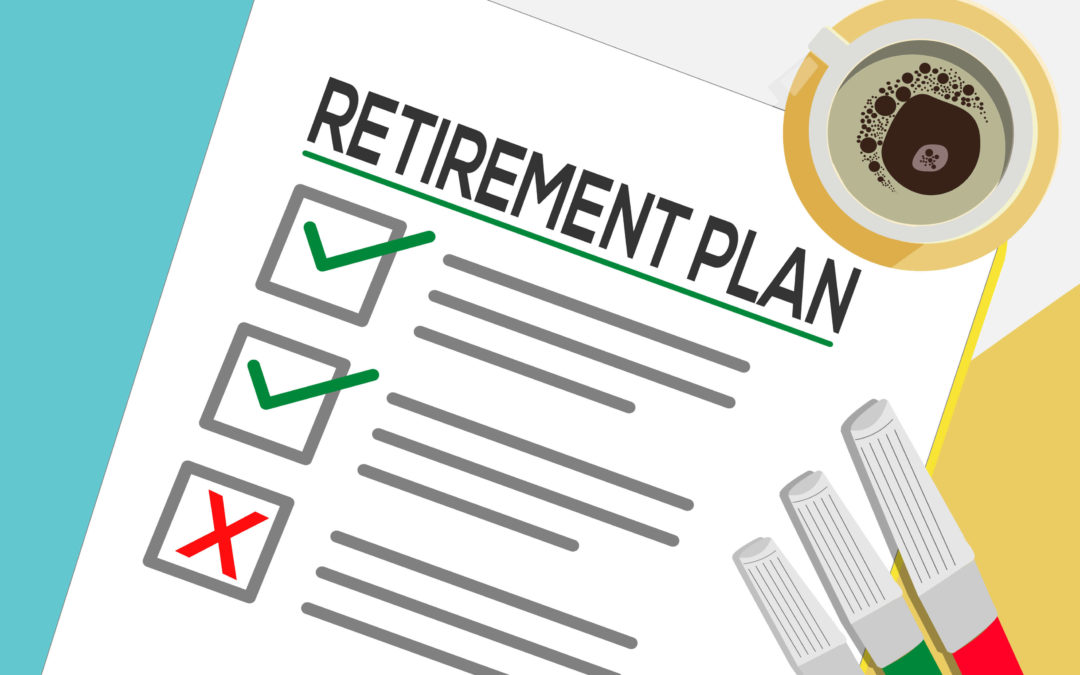With the start of a new year, many people often start reviewing their retirement accounts and investment strategies. And the way 2018 ended — with extreme market volatility — it’s likely that many more people than normal are taking a look at their retirement accounts.
USA Today recently put together a list of 18 do’s and don’ts to keep in mind when updating your retirement investments:
DO save more: Contribution limits for 401(k)s rise to $19,000 this year ($25,000 for the 50-and-older set). The more you put away now, the longer your investments have time to grow, paying off big-time down the road.
DON’T peek: It’s unwise to look at your investments more than once a month. Once is often enough to verify that your portfolio is working like it should and that market movements haven’t created big stock or sector concentrations. Looking more often, however, leads to tinkering with your investments – usually a recipe for buying stocks high and selling them low – plus extra costly commissions.
DO think long term: If you’re still working and investing for retirement, your time horizon may be 30, 40 years or more. Short-term wiggles even out over long stretches. If you got out of the market before December’s plunge and got back in at year-end and avoided that nasty period, it makes very little difference over the long term.
DON’T think short term: Avoid a sudden re-evaluation of your portfolio because of news stories. Stocks look forward, not backward. They’ve priced in whatever you just read.
DO get perspective: Get a good hobby to clear your head when stocks get violently volatile. Hiking, bird-watching, parasailing – whatever happily gets your mind off the wild wiggles of markets.
DON’T get hooked on a feeling: Resist changing your portfolio because you suddenly feel good or bad. Fear and greed drive most investment errors. They’re usually backward-looking. Reacting to the recent past is never wise.
DO diversify: Make sure you diversify enough. No one security should exceed about 5 percent of your total portfolio. Too risky.
DON’T make decisions after drinking: Too many folks work all day, tipple a few while relaxing, then look at their portfolio, get emotional and make bad investment moves. Decisions require muted emotion.
DO invest globally: Owning familiar U.S. names may feel best. But it’s a big world. America is just over half the global stock market. Quality opportunities abound in the other half.
DON’T think you’re a passive investor: Calling yourself “passive” when you’re buying and selling index funds or ETFs is self-deception. Those tools are passive, but trading them is active.
DO tune out 2020 chatter: Ignore speculation about the 2020 election and its stock market impact. It’s too far out. Early polls usually aren’t predictive. No one can pick the winner this far in advance – or gauge the election’s impact on the market.
DON’T overemphasize small differences in returns: If Fund 101 returned 9 percent annualized in the past 20 years but Fund 337 did 7 percent, it says nothing about how they’ll do in the years ahead.
DO know you’ll often be wrong: So, own some things that will do fine when what you think will do well doesn’t, just in case.
DON’T obsess: Don’t get hung up on best and worst performing stocks in a month, quarter or year. They usually cancel each other out. The totality – the broad middle – is what matters.
DO embrace mistakes: They’re learning opportunities. Ignoring them sets you up for future failure.
DON’T get cocky: We’re human. If you make a great trade, it may be skill. Or more likely luck. The road to ruin is paved with overconfidence.
DO remember capital preservation and growth can’t coexist: True capital preservation means no risk – and no return. It’s just cash, or something like it. Returns require risk.
DON’T get jealous: If your neighbors boast about big returns, good for them! But they aren’t you. Maybe they’re taking risks that aren’t right for you. Maybe they calculated performance wrong. Or got lucky. Or lied. Don’t shoot yourself in the foot trying to keep up.
Do keep learning: Build your investing and retiring know-how via daily reading.
Keep scrolling down to read more retirement savings and investing advice on Money & Markets.




